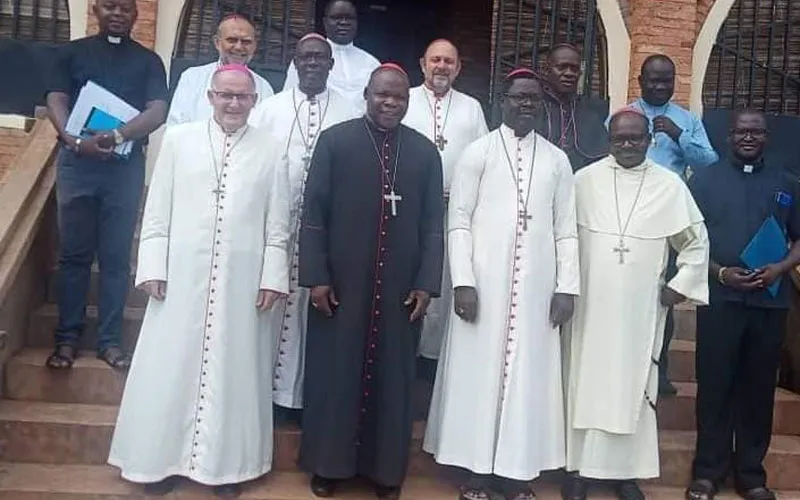The Catholic Bishops in CAR further say their country is also feeling the effects of the Russia-Ukraine crisis.
“We recall that the war in Ukraine is intolerable and we call on the two parties in conflict as well as their allies to immediately stop the fighting, in order to privilege the path of dialogue for an effective peace,” Catholic Bishops in CAR say.
They add, “War means human and material destruction, abuses, rape and violation of human rights, property, places of worship and the manipulation of religious beliefs. When one has experienced it, one cannot wish this horror on any people.”
The Catholic Church leaders encourage the parties in the conflict “to spare no effort to seek and find solutions to alleviate the suffering of our people.”
In their June 26 ten-page statement signed by the nine Catholic Bishops in CAR, CECA members also highlight the progress made in the synodal process in the country.
(Story continues below)
“The broad consultation desired by the Holy Father has made it possible to free the word and to gather fruits likely to contribute to the consolidation of a Church called to rediscover and to take the path of synodality,” they say.
The Catholic Bishops add, “Fruitful exchanges with our Protestant and Muslim brothers and sisters allowed us to measure how ecumenism and interreligious dialogue have a very promising future in our country.”
“The wide-ranging diocesan consultations of the lay faithful of Christ and of people who have no religious affiliation show the courage and love of truth of a Church called to renewal,” they further say in reference to the ongoing preparations for the Synod on Synodality.
Hinting to the theme of the Synodal process, the Catholic Church leaders say the consultations “have exposed the strengths and various obstacles to communion, participation and mission.”
They further say the synodal process has also allowed “our Church to be more sensitive to the deep malaise of the weak, the small and the marginalized.”
The broad consultations confirmed the existence of various councils at the level of the Diocesan curia and Parishes that “help in the government of the Church”, CECA members say.
However, they add, “Several behaviors were identified as obstacles to synodality. Authoritarianism, clericalism and divisions within the clergy are just some of the sad expressions.”
As a way forward, the Catholic Bishops in CAR encourage members of the Clergy, women and men Religious, and the Laity “to participate together in promoting a true framework of Christian brotherhood.”
“Priests, by virtue of their office, are called to show greater pastoral concern, to be attentive to the sense of faith of the laity and to respect the dignity of their charism and ministry,” members of CECA say.
They recommend that the “consultative and ecclesial method be favored for a greater effectiveness of the different organs of participation.”
Catholic Bishops in CAR further invite “each baptized person to be a true artisan of the synod and to spread its fruits in his or her environment.”
“To walk together, in fact, is to promote a culture and civilization of peace and love that triumphs over hatred, jealousy and fear of the other,” they add.
The Catholic Church leaders implore, “May the Lord, through the intercession of the Blessed and Most Holy Virgin Mary, bless his Church in Central African land and may he make the light of his face shine on it.”
Jude Atemanke is a Cameroonian journalist with a passion for Catholic Church communication. He holds a Bachelor’s Degree in Journalism and Mass Communication from the University of Buea in Cameroon. Currently, Jude serves as a journalist for ACI Africa.








